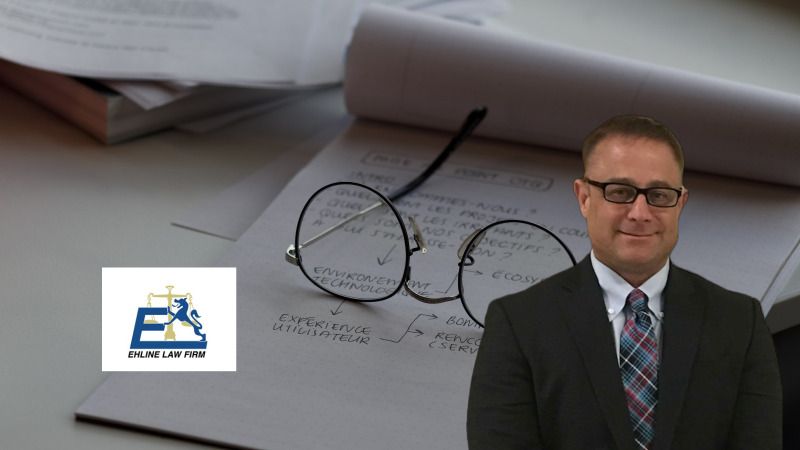
Proving “Loss of Consortium” in a Wrongful Death Case
This is the Ultimate Guide to Death Consortium Claims in CA by world-famous wrongful death attorney Michael Ehline, Esq.
Proving Up My Loss of Consortium Damages 101
Following a personal injury or wrongful death to one’s spouse, a registered domestic partner, or other close family members in California, “loss of consortium” refers to the loss of intimacy, moral support, and companionship.
Need a Wrongful Death Lawyer?
The plaintiff is entitled to non-economic damages for loss of consortium after losing a loved one. These are monetary compensation for the anguish, loss, and devastation of losing a partner’s or spouse’s companionship and regular relationships.
Economic damages, such as the injured or deceased spouse’s lost earning ability or either party’s medical expenditures, are not included in the recovery.
Loss of consortium damages is identical to pain and suffering damages in Los Angeles, California, in this regard, but for a car accident or some other negligence amounting to a personal injury lawsuit under California state law.
What Is “Loss of Consortium?”
A loss of consortium claim is frequently brought by the family member or spouse of an individual who got wounded or murdered due to the defendant’s negligent or malicious behavior as part of a personal injury claim under the wrongful death statute.
The premise is that the individual who got injured or died cannot give their spouse or family member the same love, sexual relations, affection, comfort, companionship, or society as before the accident because of the defendant’s actions. As a result, the injured person’s family member or spouse has a consortium claim for the damages.
A wrongful death attorney will be most familiar with these types of damages.
How Do You Prove Loss of Consortium?
In a “loss of consortium” action in Los Angeles, a spouse or a registered domestic partner must prove four elements:
- Someone else’s negligence or other wrongful act harmed the partner or spouse.
- The plaintiff and injured person were legally married or possessed a valid registered domestic partnership at the time of the injury.
- The plaintiff was deprived of the consortium of their spouse or partner.
- The defendant’s negligent act caused this loss.
A friendly and charismatic personal injury lawyer from Ehline Law Firm addresses the following topics to assist you in better comprehending California’s “loss of consortium” wrongful death law and insurance policies in an accident claim.
How Do You Calculate a Loss of Consortium Claim?
Loss of consortium is a type of harm frequently classified as “generic” or non-economic damages, implying that it is a loss for which money is an inadequate substitute.
The following are some further examples of generic damages:
- Embarrassment
- Humiliation
- Pain and suffering
- Loss of companionship and society
- Emotional distress
- Mental anguish and shock.
These losses (including their monetary value) are usually left to the jury or judge’s discretion. Due to the difficulty quantifying these damages, you may need to hire an experienced personal injury attorney to establish a more specific financial amount for a loss of consortium claim.
Who Can File Loss of Consortium Claims?
Spouses and Domestic Partners
In the past, only spouses could file a standalone claim for loss of consortium. However, many states have modified this threshold, allowing domestic partners to pursue a claim. Every state has its own set of rules.
Parents and Children
A kid or parent may also pursue a claim for loss of consortium in several states. In such a case, the parent or child would argue that the injured party can no longer provide the same care, compassion, and love as before the accident. In this case, the parent or child needs to establish that the physical harm had irreversibly affected the parent-child relationship and prove loss.
Loss of Consortium Cases Limitation In a Personal Injury Case
Your county’s legislation may limit the loss of consortium claim (or by an insurance policy). In several states, for example, proving a legitimate marriage is a requirement before filing for financial compensation for wrongful acts. As a result, if the couple divorces before the trial, the amount of compensation awarded gets reduced.
Find out more with a free case evaluation to determine what your loss of consortium claim might yield under California law. Even in jurisdictions where companionship comfort in same-sex marriage gets outlawed, other states may enable same-sex couples to file claims to recover damages for loss of love, affection, and counsel.
Many liability policies feature “single injury” limitations on the insurance side, meaning that the insurance company’s pee-event coverage is capped, and a claim may be classified as a separate consortium case for policy purposes.
Preparing to Claim Damages: Get Legal Advice from Ehline Law Firm
Your marriage or relationship’s sensitive and intimate features get brought to light if you file a loss of consortium claim. As a result, you should decide if you are willing to bear the rigors of the defense attorney’s interrogation throughout the trial and deposition. Our Ehline Law Firm lawyers prepare you adequately as we value our attorney-client relationship. Call us at (213) 596-9642 for a free consultation.

